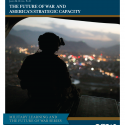 |
 |
Feeds
Russian Military Movements Unlikely Preparing for Imminent Offensive against Ukraine but Still Concerning
Nov 2, 2021 - Mason Clark, George Barros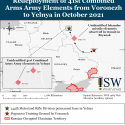
Movements and activities of elements of Russia’s 41st Combined Arms Army (CAA) and 1st Guards Tank Army in late October are unlikely to be preparations for an offensive against Ukraine, but do pose longer-term challenges to Russia’s neighbors and NATO. The Washington Post reported on October 30 that a “buildup” of Russian troops near the Ukrainian border concerned US and European officials. The report suggested that the Russian deployments are similar to those carried out on Ukraine’s border in March-April 2021. Open-source reporting does not support the assessment that Russia has moved any additional forces closer to the Ukrainian border or that a Russian offensive against Ukraine is imminent, however. The Ukrainian Ministry of Defense stated on November 1 it has not observed any transfers of Russian units, weapons, or equipment to the Ukrainian border.
Turkey in Review October 13-28, 2021
Oct 29, 2021 - Ezgi YaziciThe Turkish government has consistently expanded its Africa outreach as a component of enlarging and diversifying Turkey's global footprint since President Recep Tayyip Erdogan’s election in 2003. Ankara more recently began using defense ties to strengthen the diplomatic foundations of its outreach to African states. Growing international interest in Turkey’s domestic defense industry is speeding up this shift toward a defense-oriented approach in bilateral relations, particularly since Azerbaijan’s Turkey-enabled victory in Nagorno-Karabakh in 2020.
Afghanistan Warning Update: IS-KP in Afghanistan is Expanding Faster than Anticipated
Oct 27, 2021 - Peter Mills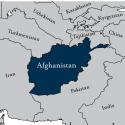
Islamic State Khorasan Province (IS-KP) is expanding its support zones and attack zones across Afghanistan as part of a campaign to undermine and replace the Taliban government. Most IS-KP attacks target Taliban fighters and officials in Nangarhar and Kunar Provinces. The presence of IS-KP propaganda materials indicates that IS-KP is expanding in northern and southern Afghanistan. Bombings at major Shi’a mosques in Kunduz on October 8 and Kandahar on October 15 indicate that IS-KP is attempting to incite sectarian conflict in Afghanistan. Taliban land expropriations from largely Shi’a communities to Sunni Taliban fighters are also increasing sectarian tensions. The contradictory efforts to protect these communities while redistributing their land will complicate the Taliban’s efforts to pose as a defender of Afghanistan’s Shi’a. If IS-KP continues to expand and strengthen, it could develop havens that enable it to conduct attacks outside Afghanistan.
Iran’s Axis of Resistance in Review, October 10-20, 2021
Oct 22, 2021 - ISW PressIran’s Iraqi proxies will likely increase their use of violence and other forms of coercion against political opponents and the Iraqi state in the coming months. The political wings of Iran’s Iraqi proxies lost two-thirds of their parliamentary seats in Iraq’s October 10, 2021, elections, which they are legally contesting due to perceived fraud. Iran’s Iraqi proxies may escalate against UN, US, Emirati, or suspected Israeli personnel or assets in retaliation for their perceived role in the proxies’ political losses in the coming months. Domestic political conflicts, Iranian decision-making, Iranian proxy attempts to enforce the December 31 deadline for the withdrawal of US forces from Iraq, and the potential for a new regional ISIS campaign to stir up sectarian violence could exacerbate post-electoral Iranian proxy violence in Iraq.
Russia in Review: October 6-19, 2021
Oct 21, 2021 - ISW PressThe Kremlin advanced two key lines of effort to increase Russian influence globally at the 2021 Conference on Interaction and Confidence Building Measures in Asia (CICA) ministerial summit—leveraging international organizations and expanding Russian cyber capabilities and influence. The CICA is an inter-governmental forum of 27 Asian and Eurasian member states founded in 1992 to enhance cooperation and promote security and stability in Asia.[1] CICA held the 2021 iteration of its biannual conference in Nur-Sultan, Kazakhstan, on October 12.
Turkey in Review: September 27-October 12
Oct 15, 2021 - Ezgi YaziciTurkey’s Balancing Act between Russia and the United States Falters
By Ezgi Yazici
Russia in Review: September 22 – October 5, 2021
Oct 7, 2021 - ISW PressSerbian President Alexander Vucic exploited Kosovo’s implementation of a new border crossing law to frame Kosovo Serbs as victims of ethnic discrimination and provoke a regional crisis on September 20, 2021. Kosovo’s government-imposed license plate regulations requiring Serbian cars entering Kosovo to receive temporary Kosovar license plates – a reciprocal measure of how Serbian authorities have regulated Kosovar cars entering Serbia for several years – on September 20. Kosovo ethnic Serbs blocked two border crossings with Serbia in northern Kosovo to protest this policy on September 20. Kosovar riot police deployed to the roadblocks and reportedly used tear gas against Serb protesters on September 20. Vucic decried Kosovar police uses of force against ethnic Serb protesters, claiming that Serbs in Kosovo suffered a “brutal attack.” Likely ethnic Serb protesters committed arson against a Kosovo vehicle registration office that did not cause casualties on September 25.
Planned Giving
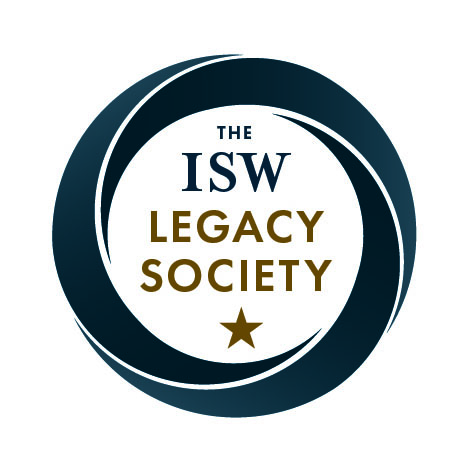
“If you fail to plan, you are planning to fail.”
-Benjamin Franklin
Thank you for your interest in The Institute for the Study of War’s Legacy Society.
Russia in Review: September 1 – September 21, 2021
Sep 23, 2021 - ISW Press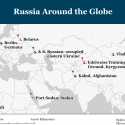
Russia’s ruling United Russia Party retained its majority in highly falsified parliamentary elections. The State Duma, the lower house of Russia’s parliament, conducted its five-year elections from September 17-19. The Kremlin-run Central Elections Commission (CEC) reported in preliminary results on September 21 that the United Russia party won 49.8 percent of the vote, securing 324 out of 450 seats, and announced a turnout of 52 percent.[1] United Russia held 343 seats before the election.
